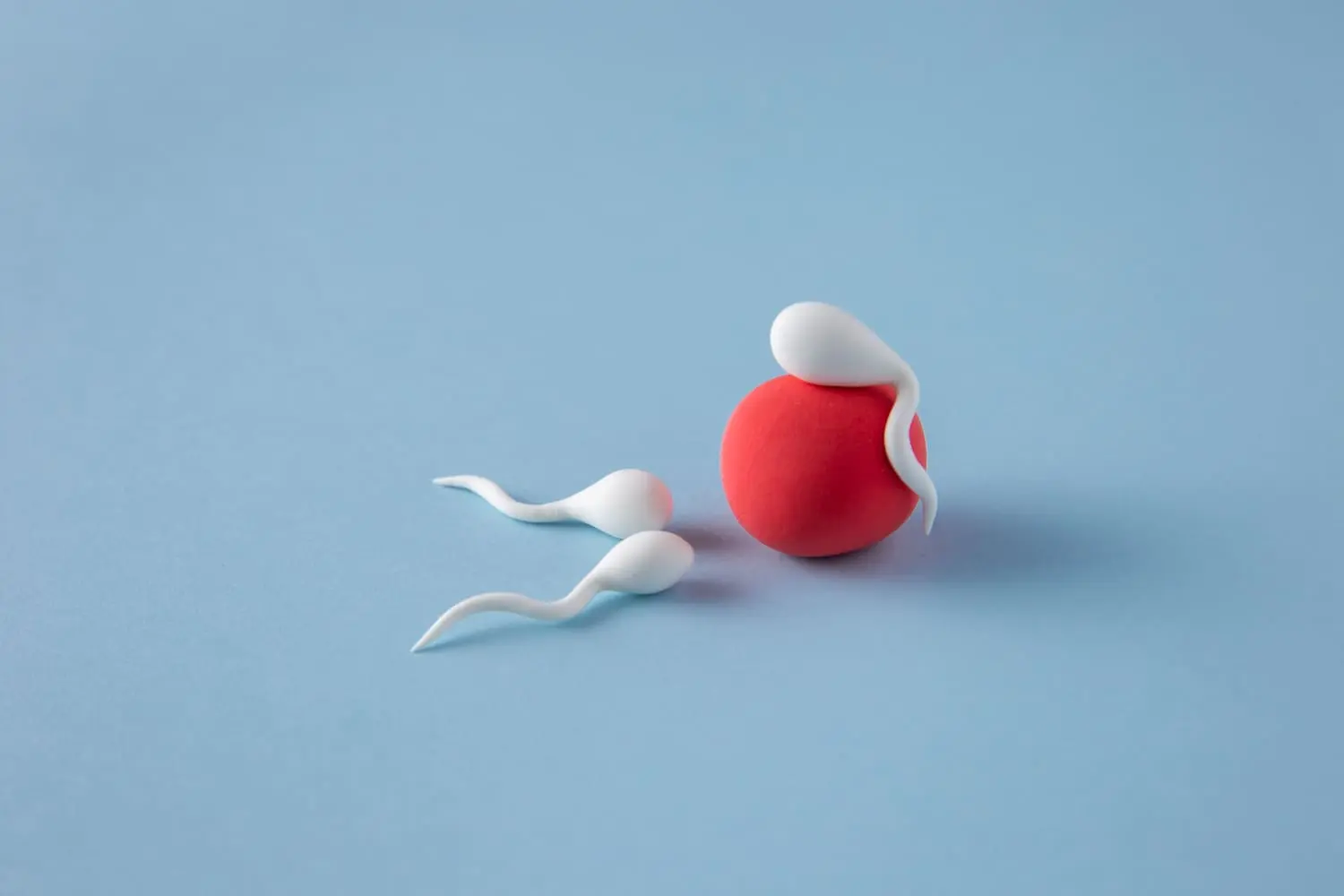Mirena expiration has been a subject of clinical inquiry for a while. Research continues to assess the safety and efficacy of its use beyond the originally approved duration of five years.
The 52-mg levonorgestrel-releasing intrauterine system (LNG-IUS) is a widely used long-acting reversible contraceptive (LARC) that provides effective contraception and therapeutic benefits for heavy menstrual bleeding (HMB).
Clinical trials and pharmacokinetic studies demonstrate that Mirena maintains a high contraceptive efficacy and safety profile beyond five years. This has led to regulatory extensions allowing up to eight years of use for contraception.
This article evaluates the scientific evidence supporting Mirena’s duration of use after five years.
Key Takeaways
- Mirena’s initial contraceptive efficacy was confirmed in multiple clinical trials with a cumulative pregnancy rate of 0.7% over five years and an annual Pearl Index of 0.2 in year one.
- The Mirena Extension Trial demonstrated continued effectiveness beyond five years, with only a 0.68% cumulative failure rate over years 6-8 that supported extended use for contraception.
- Regulatory approvals have extended Mirena’s duration of use to eight years for contraception, while the time limit for HMB remains at five years.
- Mirena’s prolonged efficacy is due to its sustained levonorgestrel release, which declines gradually from 21 mcg/day initially to 7 mcg/day at eight years.
- Patient satisfaction remains high even after eight years, with 98.7% of those completing the study expressing continued satisfaction with Mirena.
- Upon Mirena expiration, replacement should occur immediately if continued contraception is desired. Or, patients may transition to alternative methods such as systemic hormonal contraceptives or copper intrauterine devices.
How Long Does Mirena Last?
The contraceptive effectiveness of Mirena over five years was evaluated through five large clinical trials that included 3,330 participants.
Across these studies, the Pearl Index — which measures the number of pregnancies per 100 woman-years of exposure — was 0.2 in the first year and cumulatively 0.7% over five years. [1]
The Mirena Extension Trial was a multicenter, single-arm study conducted in the United States to assess its contraceptive efficacy beyond five years.
Participants aged 18-35 years who had already used Mirena for 4.5-5 years were enrolled and followed for an additional three years. [2]
Over 10,216 exposure cycles, two pregnancies occurred. One occurred in year six and the other in year seven, resulting in a cumulative failure rate of 0.68%. The annual Pearl Index during extended Mirena length of use was as follows:
- Year six: 0.34 (0.01-1.88)
- Year seven: 0.40 (0.01-2.25)
- Year eight: 0.00 (0.00-1.90)
The three-year Pearl Index for ectopic pregnancies was 0.14 (0.00-0.77), with one ectopic pregnancy reported in year seven.
The study confirmed that Mirena’s effectiveness extends to at least eight years with no significant compromise in contraceptive reliability.
Current Guidelines on Mirena Expiration
The Food and Drug Administration (FDA) has approved Mirena for the following indications:
- Contraception for up to eight years
- Management of HMB in individuals opting for intrauterine contraception, with use permitted for up to five years [3]
Bayer, Mirena’s manufacturer, has successfully completed the European Workshare Procedure, leading to the approval of extended use for up to eight years for contraception in European countries.
Additionally, the approval allows for symptom-driven extended use in the management of idiopathic menorrhagia (heavy menstrual bleeding) for up to eight years or until symptoms reappear. The device must be removed or replaced no later than eight years after insertion. [1]
How Does Mirena Stay Active for up to Eight Years?
Mirena maintains long-term contraceptive efficacy through sustained hormone release and localized physiological effects within the uterus. The extended duration is attributed to its pharmacokinetics that ensure a steady-state hormone concentration.
Upon insertion, Mirena initially releases approximately 20 µg/day of levonorgestrel, which gradually decreases over time. [3] Despite this reduction, levonorgestrel levels remain sufficient to sustain contraceptive efficacy due to its localized action within the uterus.
Its primary mechanism of action involves endometrial suppression, which prevents implantation by inducing glandular atrophy, stromal pseudodecidualization, and minimal proliferation of the endometrial lining.
Levonorgestrel also thickens cervical mucus, which impairs sperm penetration and migration and further reduces the likelihood of fertilization. Additionally, the uterine environment undergoes subtle biochemical changes that inhibit sperm motility.
Mirena After Five Years — What to Expect?
Mirena was initially approved for five years because studies reported some changes in hormonal levels and side effects that showed up after extended usage.
Changes in Hormone Levels and Effectiveness
The LNG-IUS is designed for gradual levonorgestrel release to ensure sustained contraceptive efficacy and endometrial suppression.
Pharmacokinetic studies indicate that:
- Levonorgestrel release rate starts at 21 mcg/day by day 24
- By year five, it gradually decreases to approximately 11 mcg/day
- At eight years, it further declines to 7 mcg/day [3]
Symptoms and Side Effects After Five Years
In the Mirena Extension trial, among 362 participants who entered year six of Mirena usage:
- 68.8% reported at least one adverse event, though only 18% were device-related
- The most common reasons for Mirena discontinuation were desire for pregnancy (12.2%) and irregular bleeding patterns
- 38.4% of users discontinued early, but 98.7% of those who completed eight years remained satisfied with Mirena use [2]
Even though some side effects start to appear after five years of usage, high patient satisfaction rates for up to eight years have led to extended Mirena expiration.
Can Mirena Last for Seven, Eight, or Ten Years?
Clinical research has demonstrated that Mirena maintains high contraceptive effectiveness through seven and eight years of use. These findings prompted regulatory bodies to extend the approved duration for contraception to eight years.
Currently, there is no official approval for Mirena’s use beyond eight years. While a study has explored extended duration for up to 15 years, the data is not yet sufficient to recommend the routine use of Mirena for ten years and beyond. [4]
What Happens After Mirena Expiry?
When Mirena reaches its approved duration of use, its effectiveness in preventing pregnancy and managing HMB starts to decline. Therefore, it should be removed by a qualified healthcare provider. If continued intrauterine contraception is desired, a new device can be inserted immediately following removal to ensure uninterrupted contraceptive coverage.
The replacement should be scheduled during the same visit as the removal to minimize the risk of unintended pregnancy and reduce the need for additional procedures.
Alternatively, patients may consider systemic hormonal contraceptives, such as combined oral contraceptives, contraceptive patches, or vaginal rings.
For those who prefer non-hormonal methods, a copper intrauterine device, such as Paragard, provides effective contraception for up to ten years. [5] However, clinicians should counsel patients regarding the potential for increased menstrual bleeding and dysmenorrhea associated with copper devices.
Patients wishing to conceive can have Mirena removed at any time. Studies indicate that approximately eight out of ten women achieve pregnancy within the first year post-removal of Mirena.
For patients using Mirena for HMB management, replacing the device after five years is recommended.
Frequently Asked Questions
Find answers to most common patient questions.
What Happens if You Have the Mirena in Too Long?
If Mirena remains beyond its approved duration, its effectiveness declines. This leads to an increased pregnancy risk. Extended use may also cause irregular bleeding, pelvic pain, and infection.
At What Age Should You Stop Using Mirena?
Mirena is approved for use in women of reproductive age but has not been studied or approved for women over 65. Its discontinuation should be considered at menopause when contraceptive needs decrease and alternative treatments for menopausal symptoms are more appropriate.
What Are the Negatives of Mirena?
The potential severe negatives of Mirena include ectopic pregnancy, life-threatening infection, and pelvic inflammatory disease (PID) leading to infertility. Some users experience missed periods, ovarian cysts, migraines, and vaginal infections.
Is Mirena Insertion Painful?
Mirena insertion can cause pain, severe cramping, bleeding, or vasovagal reactions (e.g., syncope and bradycardia), particularly in predisposed individuals. Pre-procedural analgesics reduce discomfort.
What if a Patient Wants to Stop Using Mirena?
A patient can stop using Mirena anytime by having it removed by a healthcare provider. Fertility returns immediately after the removal of Mirena, so if pregnancy is not desired, an alternative contraceptive method should be initiated at least seven days before removal.
Final Words
Licensed gynecologists, family physicians, and other healthcare providers authorized to administer contraceptive products can count on Medica Depot for finding Mirena at wholesale prices.
We’ll help you find the best pricing for this costly intrauterine device and make it affordable for both healthcare providers and their patients.
We also offer a 100% money-back guarantee and product authenticity assurance to ensure quality and reliability.
References
- Bayer. Mirena® approved in Europe for extended duration of use in contraception. Mirena® approved in Europe for extended duration of use in contraception. Published October 14, 2022. https://www.bayer.com/media/en-us/mirena-approved-in-europe-for-extended-duration-of-use-in-contraception/
- Jensen JT, Lukkari-Lax E, Schulze A, Wahdan Y, Serrani M, Kroll R. Contraceptive efficacy and safety of the 52-mg levonorgestrel intrauterine system for up to 8 years: findings from the Mirena Extension Trial. American Journal of Obstetrics and Gynecology. 2022;227(6):873.e1-873.e12. doi:https://doi.org/10.1016/j.ajog.2022.09.007
- HIGHLIGHTS of PRESCRIBING INFORMATION. https://www.accessdata.fda.gov/drugsatfda_docs/label/2022/021225s043lbl.pdf
- Bahamondes L, Fernandes A, Bahamondes MV, Juliato CT, Ali M, Monteiro I. Pregnancy outcomes associated with extended use of the 52-mg 20 μg/day levonorgestrel-releasing intrauterine system beyond 60 months: A chart review of 776 women in Brazil. Contraception. 2018;97(3):205-209. doi:https://doi.org/10.1016/j.contraception.2017.10.007
- Paragard® IUD | Official Site. Paragard® IUD. Published 2018. https://www.paragard.com/




